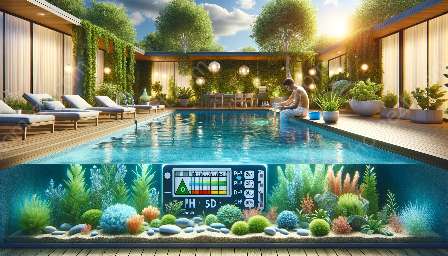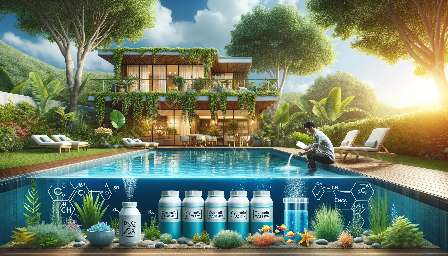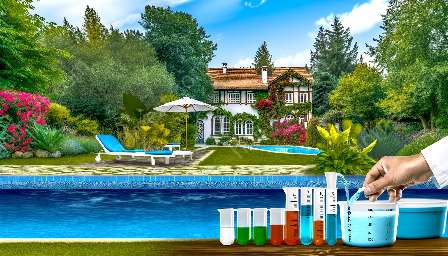Pool disinfection is a critical aspect of maintaining water chemistry in swimming pools and spas. It involves the process of killing and controlling harmful microorganisms in the water to ensure it is safe for swimmers. Effective pool disinfection is essential for preventing the spread of waterborne illnesses and maintaining water quality.
Importance of Pool Disinfection
Proper pool disinfection is crucial for creating a safe and healthy swimming environment. Without adequate disinfection, the water can become a breeding ground for bacteria, viruses, and algae, leading to various health risks for swimmers. Disinfection also helps in controlling the growth of biofilm, which can cause surface staining and reduce the efficiency of pool equipment.
Water Chemistry and Disinfection
Water chemistry plays a significant role in the effectiveness of pool disinfection. Factors such as pH, alkalinity, and chlorine levels impact the ability of disinfectants to kill pathogens and maintain water clarity. Maintaining balanced water chemistry is essential for ensuring that the disinfection process is efficient and the water is safe for use.
Methods of Pool Disinfection
There are several methods of pool disinfection, each with its own advantages and limitations:
- Chlorine: Chlorine is the most widely used pool disinfectant. It is effective in killing a wide range of pathogens and is available in different forms, including liquid, granular, and tablet.
- Bromine: Bromine is an alternative to chlorine and is known for its stability in high temperatures, making it suitable for spas and hot tubs.
- Ozone: Ozone systems use ozone gas to destroy contaminants in the water. It is a powerful oxidizer and helps in reducing the reliance on traditional chemical disinfectants.
- UV Sterilization: UV sterilizers use ultraviolet light to kill microorganisms in the water. It is effective in eliminating chlorine-resistant pathogens and reducing the use of chemical disinfectants.
- Saltwater Systems: Saltwater pools use electrolysis to generate chlorine from salt, providing a more automated and low-maintenance approach to disinfection.
Maintaining Pool Disinfection
Regular testing of water chemistry and disinfectant levels is essential for maintaining effective pool disinfection. It is important to monitor pH, chlorine/bromine levels, and alkalinity to ensure they are within the recommended ranges. Additionally, routine cleaning and maintenance of filters and circulation systems contribute to the overall effectiveness of pool disinfection.
In Conclusion
Pool disinfection is a key aspect of water chemistry management in swimming pools and spas. Understanding the importance of disinfection, its relationship with water chemistry, and the various methods available can help pool owners and operators ensure a safe and enjoyable swimming experience for users.



















